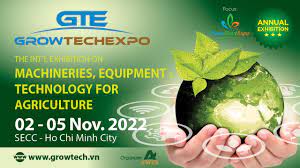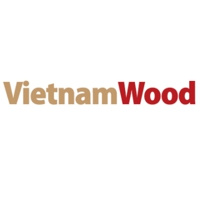Increasing market share of agricultural products in the EU thanks to the removal of tariff barriers
As a new-generation free trade agreement that takes effect from August 1, 2021, the EVFTA opens a new era for trade relations between Vietnam and the EU by reducing tariff differences and opening up markets. bilateral school. After a 10-year implementation period, the EVFTA will help eliminate nearly 99% of tariff lines on exports from Vietnam to Europe.
Immediately after the EVFTA took effect, the EU kept 47 tariff lines of fresh and processed vegetable products to 0% - which are Vietnam's strong export products. In addition, the EVFTA also removes some trade barriers for Vietnam and helps your country meet international standards within the legal framework, environmental regulations, and investment requirements.
Jean Jacques Bouflet, Vice President of the European Chamber of Commerce (EuroCham), said EU investors have a positive view of the EVFTA. An enterprise-to-business survey conducted by EuroCham and VCCI in the second quarter of 2022 shows that the number of EU businesses benefiting from doing business in Vietnam has increased from 5% in the fourth quarter of 2021 to 8% in the quarter. II/2022.
In the opposite direction, data from the Ministry of Industry and Trade show that in the context of the global pandemic, Vietnam's exports to the EU have increased by 40% in 2021, reaching about 45 billion USD. With this data, the EU becomes one of the largest export markets for Vietnamese agricultural products at the moment, accounting for 30.7% of the total export turnover of key agricultural products including coffee, cashews, and nuts. pepper, vegetables, rice,…

Rice, coffee, seafood (catfish), and vegetables (fresh, processed) are the main products of Vietnam exported to the EU. Illustration.
At the forum, Mr. Ngo Chung Khanh, Deputy Director of the Multilateral Trade Policy Department (Ministry of Industry and Trade), informed that Vietnam is in the second year of implementing the EVFTA. Accordingly, Vietnam's key products such as rice, coffee, seafood (catfish), and vegetables (fresh and processed) will be introduced into the European market with a tax rate of up to zero. % in the near future, opening up great opportunities for enterprises producing and processing these items in Vietnam.
The market share of Vietnam's coffee, vegetables and seafood products, and coffee in the European market is relatively small, but with the tax commitment from the EVFTA, Vietnam can take advantage of the opportunity to increase market share, and raise awareness in this region.
At the forum, Mr. Pham Tan Cong, Chairman of the Vietnam Confederation of Trade and Industry (VCCI), said that tropical agricultural products are very suitable for the temperate market of the EU. Currently, Vietnam has brought a lot of quality products to the EU market such as ST 25 rice, Siamese coconut, dragon fruit, and lychee,...
“The EVFTA has created an opportunity for both sides to diversify markets and improve consumer tastes. Therefore, businesses of the two sides need to make joint efforts to strengthen cooperation relations," said Mr. Pham Tan Cong.
Limited access to the EU market because of the lack of understanding of the EVFTA agreement
However, in 2021, the total value of Vietnam's agricultural exports to the EU will only account for 4% of the total agricultural import turnover of this market. This proportion shows that the export turnover of Vietnam's agricultural products to the EU is still low compared to Vietnam's export potential as well as the EU's import demand.
According to Khanh, if Vietnam does not take advantage of the time to take advantage of the EVFTA, Vietnam may regret it because in the future, it may face more and more competition from countries in the region with the ability to export commodities. equivalent products to the EU market.
The EU is a market with high and strict requirements on animal and plant quarantine. To strengthen the position and reputation of Vietnamese agricultural products in this market, businesses need to improve the quality and fully comply with EU standards and regulations.
Besides, it is necessary to improve product quality, reasonable price and sustainable development factors as EU consumers are increasingly interested in how products are made to meet the protection factors. environment or protect the rights of workers.

According to a survey by VCCI, only 10% of Vietnamese enterprises clearly understand EVFTA. Photo: Tran Trung.
According to a survey by VCCI, only 10% of Vietnamese enterprises clearly understand EVFTA. Thus, up to 90% of Vietnamese enterprises do not understand or fully understand this bilateral trade agreement. This may be a barrier preventing Vietnamese enterprises from taking full advantage of opportunities from the EU market.
Sharing the same opinion with a representative from VCCI, Mr. Jean-Jacques Bouflet said that Vietnam's agricultural exports to the EU face many challenges, including requirements from the EU. Potential product groups such as vegetables, rice and ready-to-eat foods have not yet reached the level of output required by major European supermarket chains.
In the context of increasing requirements from the EU, the source of raw vegetables and fruits that can meet export standards to the EU market is still limited. Therefore, European businesses have not yet switched to importing fresh fruits and vegetables from Vietnam.
Meanwhile, the EU side continuously updates and informs about SPS indicators for imported agricultural products, and strengthens certification criteria related to environmental protection and sustainable social development. steady.
“Importantly, the EU provisions are not intended to restrict exports, but to ensure standards of health and quality of agricultural products throughout the EU market. Exports of agricultural and aquatic products face difficulties in meeting these standards, affecting the position of the Vietnamese market. Therefore, Vietnam needs to find a solution to meet EU and international criteria to penetrate markets more effectively,” shared Mr. Jean-Jacques Bouflet.
Strict rules on traceability are also a challenge for Vietnamese exporters. Due to the recovery of the EU along with many tax incentives, the EVFTA will increase competitive agricultural products in the EU market, so Vietnamese businesses need to access market information about tax incentives. , technical barriers to food safety, origin and finally brand development.






.png)